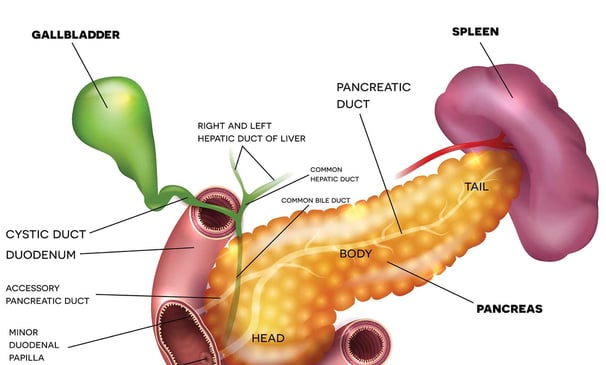Pancreas Infection: Types, Symptoms, and Prevention
Learn about what causes pancreas infections, the different types of infections, common symptoms, and how to protect your pancreas from infection . #pancreas


The pancreas is a crucial organ located behind the stomach that plays a key role in digestion and blood sugar regulation. It produces enzymes to aid in the digestion of food and releases hormones, including insulin, which regulates blood sugar levels.
Infections of the pancreas are relatively uncommon but can occur. Pancreatitis is a common condition where the pancreas becomes inflamed. This inflammation can be caused by various factors, including gallstones, excessive alcohol consumption, certain medications, infections, and metabolic disorders.
In terms of protecting the pancreas, maintaining a healthy lifestyle is crucial. This includes:
Diet: Consume a balanced diet that is low in fat and avoids excessive alcohol intake.
Hydration: Staying well-hydrated is important for overall health, including pancreatic health.
Moderate Alcohol Consumption: Excessive alcohol intake is a risk factor for pancreatitis, so moderation is key.
Healthy Weight: Maintaining a healthy weight through regular exercise and a balanced diet is beneficial.
In cases where the pancreas is severely damaged or infected, surgery may be necessary. If the infection is due to gallstones, for example, removal of the gallbladder might be recommended. However, removing the pancreas is not a common procedure due to the vital functions it performs.
After the removal of the pancreas, individuals usually require lifelong pancreatic enzyme replacement therapy and insulin to manage digestion and blood sugar levels. It's important to note that removal of the pancreas is a serious step and is typically considered only in extreme cases where other treatment options have failed.
The risk level associated with pancreatitis and pancreatic infections can vary depending on the underlying causes and individual health factors. Here are some factors that can influence the risk level:
Gallstones: If the infection is caused by gallstones blocking the pancreatic duct, the risk may be higher for individuals who have a history of gallstones or related conditions.
Alcohol Consumption: Excessive alcohol consumption is a known risk factor for pancreatitis. Individuals who regularly consume large amounts of alcohol may have an increased risk.
Medical Conditions: Certain medical conditions, such as cystic fibrosis or metabolic disorders, can increase the risk of pancreatic issues.
Infections: If the pancreatic infection is due to an underlying infection, the risk can depend on the nature and severity of the infection.
Genetic Factors: Some individuals may be genetically predisposed to pancreatic issues, which can influence the risk.
It's important to note that pancreatitis can range from mild to severe, and the risk of complications increases with the severity of the condition. Severe cases of pancreatitis can lead to serious complications, including organ failure, and may require intensive medical intervention.
Maintaining a healthy lifestyle by following a balanced diet, moderating alcohol intake, staying hydrated, and managing underlying health conditions can help reduce the risk of pancreatitis. If an individual has specific risk factors or concerns, it's advisable to consult with a healthcare professional for personalized advice and preventive measures. Regular medical check-ups can also help in early detection and management of any potential issues related to the pancreas.
